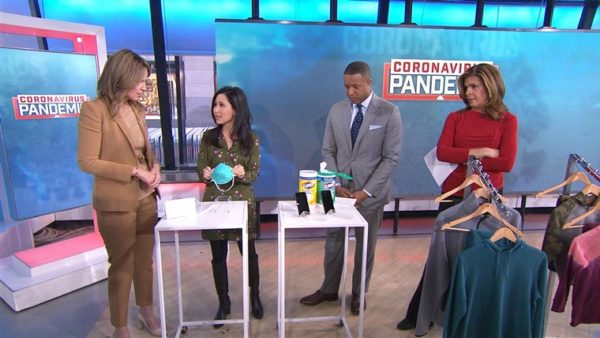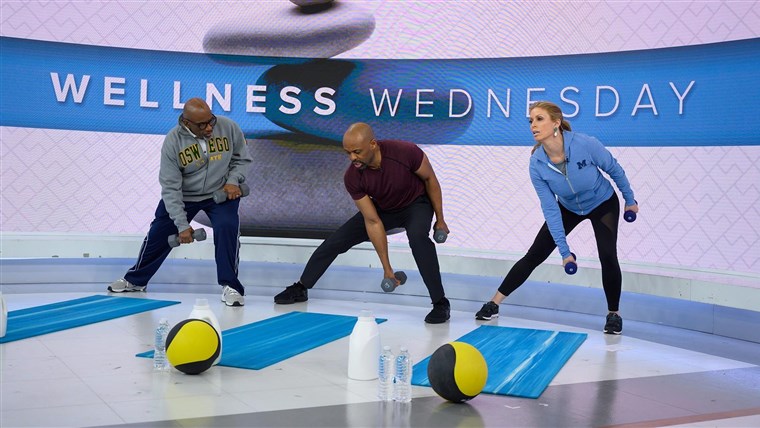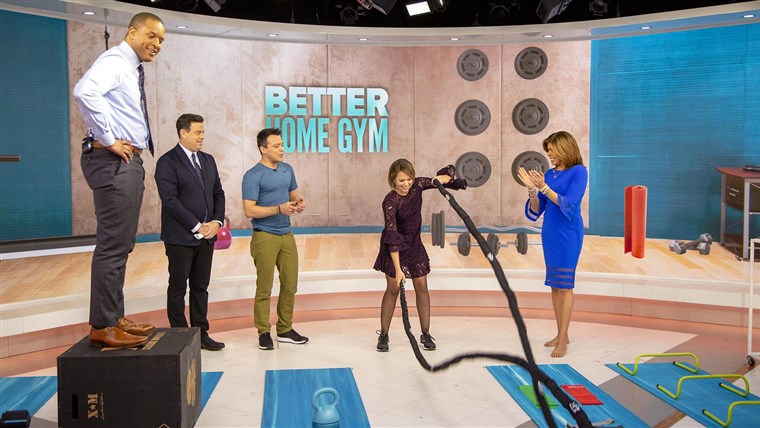
That “killer cardio” class at the gym might take on a new meaning for people worried about the new coronavirus.
Exercise is a prescription for good health, but is it wise to visit a health club as the outbreak grows?
When it comes to healthy younger people who have no symptoms and live in areas where there’s no widespread disease, it’s safe to go to the gym, said Dr. Michael Ison, an infectious disease physician at Northwestern Medicine in Chicago.
“But they have to use extra care,” Ison told TODAY.
“You have lots of people coming and using shared equipment. When you work out, you often are rubbing your face and nose to get the sweat off and then touching the handlebars — that would be a great way for someone to potentially share the virus.”
Whether it’s safe to go to the gym may change over time as more cases emerge. It’s also important to follow local guidance since the outbreak is worse in some areas than others.
People who are at-risk for complications from COVID-19 — older adults over 60 and patients with underlying medical conditions — should minimize their exposures to the public, which would include skipping the gym, Ison noted. His father, who is in his 80s, has stopped going to his health club to protect himself.
For those who want to keep the maximum social distance, the safest way to exercise may be a home gym.
People who do decide to go to a health club should be very diligent about washing their hands both before and after they work out, Ison noted.
Here’s more advice for healthy young people in areas without a widespread outbreak:
Be sure to wipe down the machine thoroughly with an anti-bacterial wipe before and after you use the equipment — a dry towel or a towel with water won’t do the trick, Ison said. Try to disinfect all surfaces.
The number of people in an aerobics class is relatively small and there’s usually a reasonable degree of separation between the participants, Ison said.
Use your own mat in a yoga class. If using a mat provided by the health club, clean it with antimicrobial wipe.
The chlorine in the pool will likely inactivate the virus, so doing laps is probably less of a concern, Ison said.
“The bigger issue is that you have to change in the shared locker rooms, and people are often touching the mouth, nose and face and then maybe touching the lockers,” he noted.
“If you do, wash your hands carefully before and after swimming in the pool.”
This seems to be the best bet. Sunlight is “nature’s greatest disinfectant” because the ultraviolet light inactivates bacteria and viruses, said Joseph Fair, a virologist, epidemiologist and NBC News Science contributor.
When exercising outside, there are also fewer people close enough to you for their respiratory droplets to reach your body when they sneeze or cough.
Going to a restaurant or cafe: In general, it’s safe to go out to eat, Ison said. The cooking process will inactivate the virus. But if there’s someone sick sitting next to you or working at the eatery, ask to move or don’t eat at that establishment.
Getting a haircut: That’s slightly lower risk because it’s just you and the hairdresser, Ison said. But stay away from sick clients and wash your hands after touching anything in the waiting area. “If the barber is sick, I probably wouldn’t get my hair cut that day,” he noted.



 A. Pawlowski
A. Pawlowski